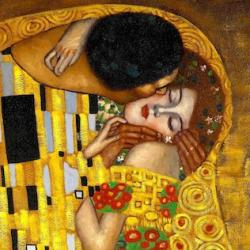Barth’s theology of justification has many virtues. Let me highlight only a couple of them.
For starters, Barth’s is an utterly, manically theocentric account of justification. This comes through in large ways and small. One of the most striking indications of this is the way he deals with the question of the temporal distance between the cross/resurrection and the lives of sinners saved by Christ: How is that temporal distance to be bridged? Barth acknowledges it’s a real question, and one that has plagued modern theology, but then he pushes deeper: The real issue, he thinks, is not the temporal distance but the sheer fact of the cross and resurrection.
“We have to ask whether our whole concern about our temporal distance from Jesus Christ, our indirect relationship to Him, is not a genuine problem only in the sense that it represents a movement of flight from this encounter. Are we not putting up a technical difficulty, knowing all the time, that it is not this difficulty that oppresses us, but rather the concern that this difficulty is not so great that it cannot be removed?” Isn’t the real problem, Barth asks, our resistance to the notion that God occupies the same time and space that we occupy? Isn’t this really a question of us trying to protect ourselves and our space from God? (Church Dogmatics, IV.1, 290-1).
Barth’s theocentricity also comes out in his emphasis on the fact that justification is first and foremost the justification of God, which He describes not only in terms of the demonstration of God’s righteousness but in terms of the assertion of God’s rights. God is Creator and has elected man as covenant-partner with Him. Human beings resist this right and want to assert their autonomy. Human rebellion and sin is a challenge to God’s right. In justification, God asserts His claim as Creator: “This right of God is compromised by sin, by the existence of man as the man of sin, by the fact of his pride and fall. We have described this fact as the invasion by chaos of the cosmos of God’s creating, as the blot on his creation. Is God the Creator and Lord in relation to this blot on the cosmos and man, or is He not? Is He the Creator and Lord if this invasion is possible or tolerable, if evil can sustain and make good its claim to actuality? The justification of man is plainly God’s decision that this claim is empty, that this invasion and blot is impossible and intolerable, that it cannot be suffered. It is God’s contradiction of the contradiction raised against Himself.” God said “Let there be light,” not “let there be darkness,” and justification is His intervention against the darkness (562).
Barth’s doctrine of justification is also remarkable for the way he integrates resurrection into justification. Justification is God’s condemnation of the man of sin – His assertion of His right and His justice against human rebellion. But it is not only an assertion of right as Judge against man as sinner, whose place Christ takes, but an assertion of His determination to make and elect man as His covenant-partner. Without resurrection of the new man, the judgment passed on the old man is incomplete. Justification is simply not accomplished at all unless the mortificatio of the flesh at the cross is followed by the vivificatio at the resurrection. And this means too that justification cannot be a bare verdict that leaves man existentially in the same position he was before justification. Justification in the lives of sinners means the reception of the condemnation (cross) and justification (resurrection) that occurred in Jesus. It means being reconstituted as a new human being, with a past now dead and gone, with a new future of life.
As Barth puts it, the pardon of God does not mean that “something is said concerning us, or, as it were, pasted on us, but that a fact is created, a human situation which is basically altered. . . . The divine pardon that takes place in Jesus Christ has a binding force. It speaks of a being and possession of the man to whom it applied” (570). Note: a being and a possession.















